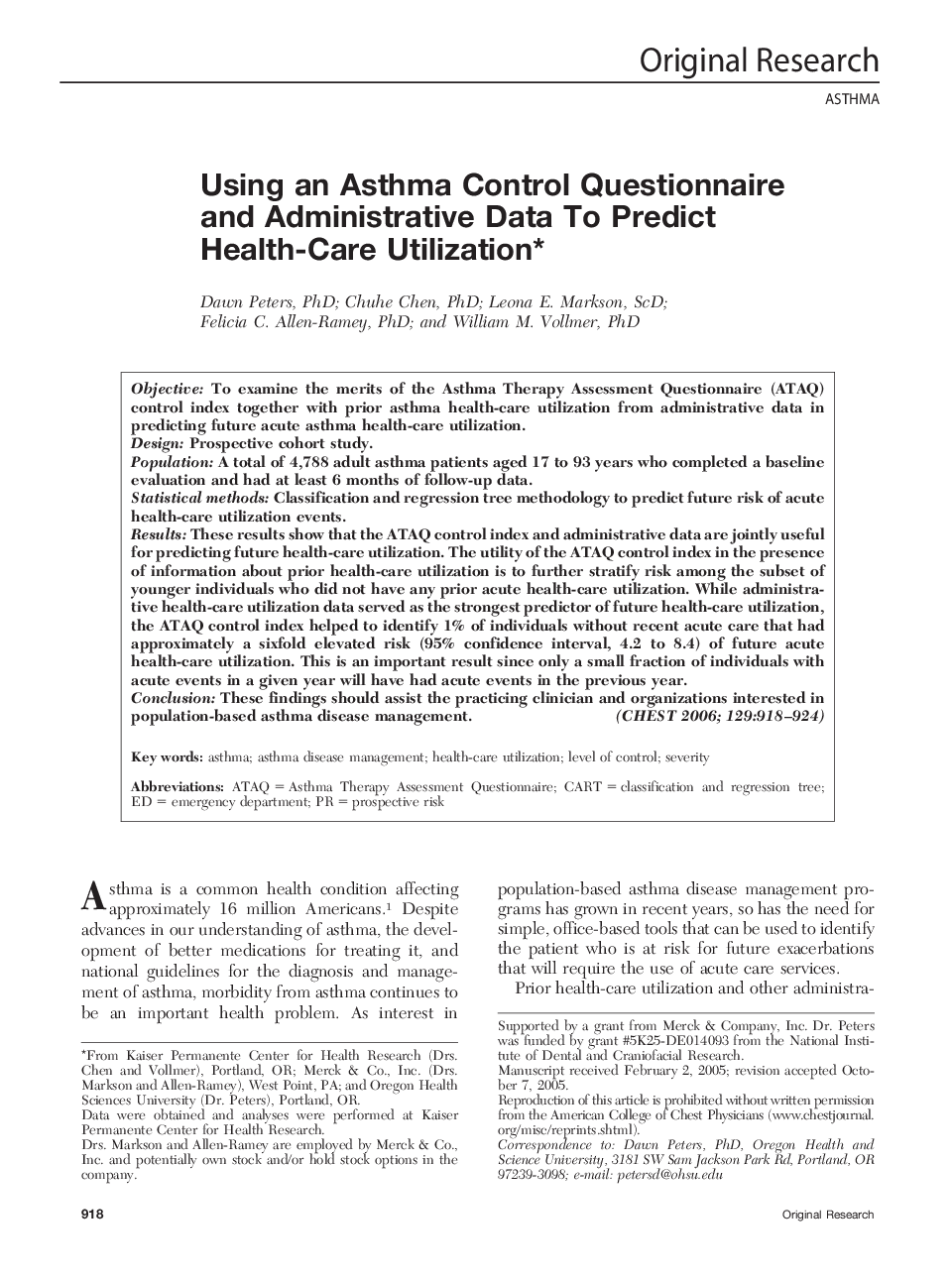| Article ID | Journal | Published Year | Pages | File Type |
|---|---|---|---|---|
| 2905587 | Chest | 2006 | 7 Pages |
ObjectiveTo examine the merits of the Asthma Therapy Assessment Questionnaire (ATAQ) control index together with prior asthma health-care utilization from administrative data in predicting future acute asthma health-care utilization.DesignProspective cohort study.PopulationA total of 4,788 adult asthma patients aged 17 to 93 years who completed a baseline evaluation and had at least 6 months of follow-up data.Statistical methodsClassification and regression tree methodology to predict future risk of acute health-care utilization events.ResultsThese results show that the ATAQ control index and administrative data are jointly useful for predicting future health-care utilization. The utility of the ATAQ control index in the presence of information about prior health-care utilization is to further stratify risk among the subset of younger individuals who did not have any prior acute health-care utilization. While administrative health-care utilization data served as the strongest predictor of future health-care utilization, the ATAQ control index helped to identify 1% of individuals without recent acute care that had approximately a sixfold elevated risk (95% confidence interval, 4.2 to 8.4) of future acute health-care utilization. This is an important result since only a small fraction of individuals with acute events in a given year will have had acute events in the previous year.ConclusionThese findings should assist the practicing clinician and organizations interested in population-based asthma disease management.
